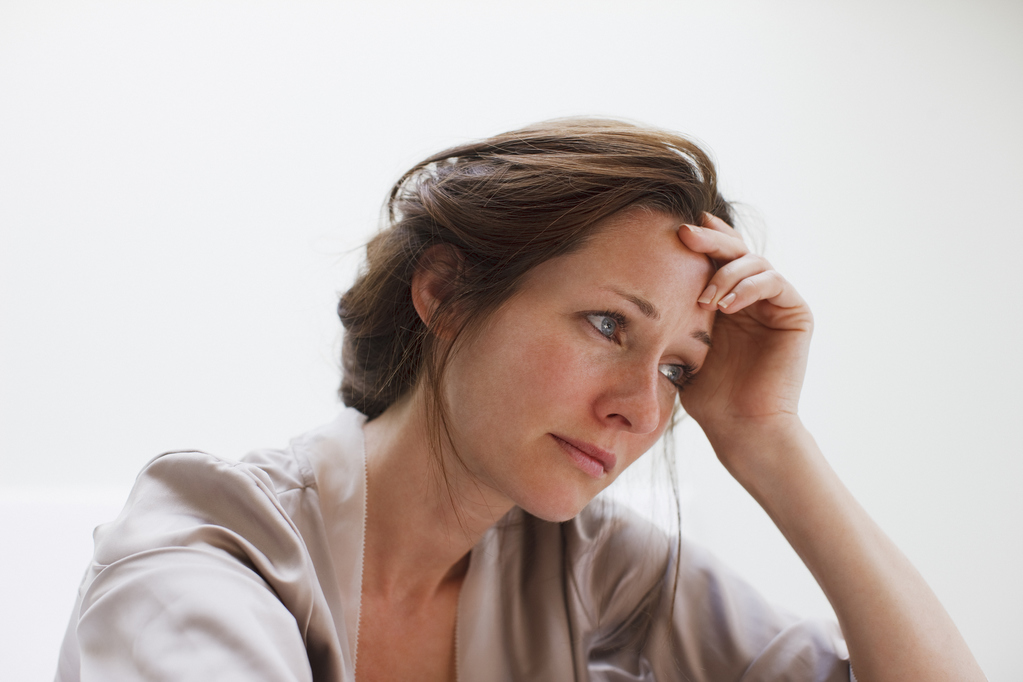Do you ovulate irregularly? Are you having difficulty getting pregnant? Are you having the same symptoms as your mother in menopause but are too young to be menopausal? Then it’s possible you have primary ovarian insufficiency (POI).
Primary ovarian insufficiency is a potential cause of female infertility. POI is also known as premature ovarian failure. Women with POI don’t ovulate regularly and are unlikely to conceive with their own eggs. The most successful fertility treatment option is IVF with an egg or embryo donor. In Vitro Fertilization is among the most frequent assisted reproduction procedures that we offer at Midwest Fertility Center. In addition, the International Egg Bank can provide an egg donor and has four recipient programs to meet your needs.
You may experience the same symptoms as menopausal women. While the disorder was once also called “premature menopause,” this name is inaccurate. Menopausal women don’t get periods, can’t ovulate, and can’t get pregnant with their own eggs. Women with POI may occasionally ovulate and may have a return of regular menstrual periods (even years after diagnosis). Also, conception with their own eggs isn’t completely impossible.
Primary ovarian insufficiency is a spectrum disorder. Some cases of POI are worse than others and will show varying degrees of symptoms. The most common symptom is irregular periods. Women with POI may
- Have no periods (amenorrhea)
- Have periods that come infrequently (more than every 35 days)
- Have periods that come irregularly (varies by more than a few days from month to month)
- Have unusual menstrual bleeding (very light periods or spotting)
It is also possible for a woman with POI to go without regular menstrual cycles for years, and then suddenly start menstruating again. Some women with POI experience symptoms from low estrogen levels that mimic menopause. These symptoms may be constant or come and go. These symptoms may include:
- Painful intercourse
- Vaginal dryness
- Low libido
- Hot flashes and/or night sweats
- Insomnia or difficulty sleeping
- Depression and/or anxiety
The ovaries of a healthy adult woman contain tens of thousands of follicles. In each follicle is a potential egg. Only a small percentage of these follicles will ever mature, ovulate, and have the potential to become an embryo. It’s natural and normal for the follicles to decrease with time. It’s also normal for the follicles to eventually stop responding effectively to the hormones that trigger egg growth and ovulation. This is the cause of age-related infertility, and why women age 40 and up are less likely to conceive than a 30-year-old woman. In women with primary ovarian insufficiency, their ovaries don’t function as expected. The ovaries may have fewer follicles than what would be expected for a woman their age. Their antral follicle count (a method of estimating the general total of available follicles in the ovaries) will be low.
Fertility drugs may not be effective with POI. The ovaries and follicles won’t respond effectively to the hormones meant to stimulate egg maturation and ovulation. The ovaries may also fail to produce normal levels of estrogen. Fertility drugs will only work if there are enough follicles in the ovaries to be stimulated and if those follicles will respond when exposed to ovulation-stimulating hormones. In POI, the follicles don’t fully respond to fertility drugs. Clomid or gonadotropins typically fail to stimulate healthy egg development or ovulation. Even if they can trigger ovulation, the eggs may be poor quality. This makes fertilization and pregnancy less likely.
Dr. Amos Madanes cannot diagnose primary ovarian insufficiency on symptoms alone. There are other possible causes of irregular cycles and low estrogen levels, besides primary ovarian insufficiency like polycystic ovarian syndrome. So before Dr. Madanes diagnoses POI, he may order the following tests:
- A pregnancy test (to confirm this isn’t why your periods have stopped)
- FSH levels (will be at menopause levels with POI)
- Estradiol (estrogen) levels (often low in women with POI, but not always)
- AMH (to evaluation overall ovarian reserves)
- Prolactin (to rule out hyperprolactinemia)
- Antral follicle count (an ultrasound, also to evaluate ovarian reserves)
- Clomid challenge test (to evaluate how your ovaries respond to fertility drugs)
If your FSH levels are unusually high and in the menopausal range, Dr. Madanes will likely reorder the test for a month later to confirm. If the results repeat, and you are age 40 or younger, you may be diagnosed with POI.
The best and frequently only fertility treatment option for women with spontaneous primary ovarian insufficiency is IVF with an egg or embryo donor. Midwest Fertility Center offers a number of treatments including in vitro fertilization (IVF), artificial insemination and donor insemination, as well as surgical procedures like tubal ligation reversal. As a pioneer in the field of reproductive endocrinology, we have adapted the latest technologies to successfully treat patients from across the nation.
Our medical staff is also available to answer your questions at 1-800-244-0212.
Ready to get started? Book a consultation.

